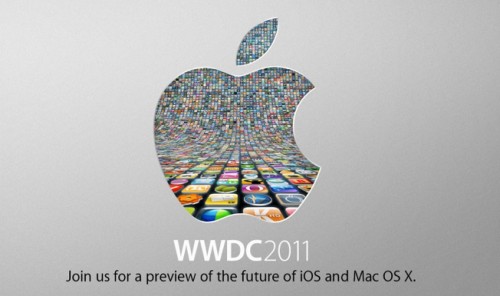游戏开发者成苹果WWDC座上宾,企业应用开发者遭冷遇
在不久之前,苹果还曾热心地向企业IT项目提供机架服务器、稳定可靠的磁盘阵列、网格计算和网络存储等支持,虽然苹果现在仍提供Xgrid和Xsan等服务器软件,但其服务器硬件设备却已成为历史。
最近有消息称2011年苹果开发者大会(WWDC)的门票在头一天就已售罄,与此同时,有一系列迹象不禁让人产生联想——苹果似乎开始冷落企业应用开发者了。
当然,苹果已经从制造电脑转向了销售应用程序的运营模式,并从这些应用销售额中抽取一定比例的收益,因此游戏邦认为,苹果在这一转型过程中远离企业硬件领域其实也是一个不可避免的趋势。因为不少企业都不采用苹果电脑,所以不难理解乔布斯及其下属会对这一客户群体态度冷淡。没有人可以责怪苹果从服务器硬件市场中抽身而退的决定,毕竟这个市场即使是在鼎盛时期也一直很难盈利,而且要知道过去几年就是企业IT项目发展的“黄金时代”。
这些企业IT项目主管们虽然对Mac平台缺乏兴趣,但却很拥护苹果移动设备,尤其是可广泛服务于商务用途的iPad。之前曾认为针对Mac平台编程极其费时费劲的企业应用开发者,现在正积极投身于iOS平台的应用开发。
看到企业应用开发者对iOS平台的支持率这么高,不少人可能会认为今年的WWDC一定会为这一群体腾出席位,但事实却并非如此。现在正如日中天的游戏开发者才能为苹果创造大量收益,所以苹果当然会选择照顾这一群体。
在WWDC报名结束后,科技博客AppleInsider透露企业应用开发者几乎已完全被WWDC拒之门外。而据游戏邦所知过去这一群体处境最理想的时候,不少公司的参会代表总得花上数小时等候老板和会计的批准,让公司同意报销报名费(1599美元)、机票(姑且凑个整数,算它700美元)、住宿费(一般是四五个晚上,按每晚200美元的标准来算)——这笔费用总共超过了3000美元。
耐人寻味的是苹果很乐衷于向企业应用开发者征收比一般开发者多3倍的iOS应用开发项目授权费,但却并不乐意邀请他们参加苹果最盛大的开发者聚会。当然,企业应用开发者并没有被苹果的围墙完全隔离起来,iOS企业应用开发程序(iOS Enterprise Program)支持各公司开发仅限内部使用的iOS应用程序,这个项目多少还是可以创造一些收益的。
但回顾苹果过去几年反复无常的态度,就可以推测苹果可能还会采取对企业应用开发者更为不利的举动。当iPhone刚亮相时,基于网络的应用程序还是一个众人热捧的香饽饽,苹果当时告诉开发者他们并不打算将Cocoa运用于移动设备。
可是再看看今天的情况,网络应用已成昨日旧闻,Cocoa Touch却已在iOS平台抛头露面。另外,那些使用了嵌入式iOS网页浏览器的应用程序,甚至无法利用苹果手机版本的Safari网页浏览器中的性能优化功能。
那些因WWDC而凉透心的企业应用开发者,或许将更清醒地抵制苹果平台的诱惑,集中精力关注自己内部用户的需求。另外要看到,RIM和Mozilla都在支持Android,这有可能会为企业应用带来更好的发展机遇。另外有人认为,既然苹果现在多数营收来自游戏和娱乐明星的贡献,那么它最好还是坦率一点地承认,企业客户已不再是其关注重点。(本文为游戏邦/gamerboom.com编译,转载请注明来源:游戏邦)
Does Apple Hate Enterprise Developers?
With games reaching new importance for the company, perhaps corporate coders are better served by being shut out from WWDC.
It wasn’t that long ago that Apple courted the enterprise IT dollar with rack-mounted servers, solid and reliable RAID arrays, grid computing and storage networking. Today, that’s just a memory.
Although Apple continues to maintain and support server software, such as Xgrid and Xsan, the hardware is history. But after the first-day sellout of this year’s Worldwide Developer Conference, I’m beginning to wonder if Apple holds some kind of grudge against enterprise developers.
Apple’s move away from enterprise hardware was inevitable as it continues to evolve, from being a company that made computers, to one that sells gadgets and takes a cut from the sale of content for those gadgets. Since the enterprise never embraced Apple’s computers, it’s hard to fault founder and CEO Steve Jobs and his minions for returning the favor—if that is indeed what’s taking place. I can’t blame Apple for pulling the plug on its server-class hardware. It’s hard to make money in that market in the best of times, and the last few years have been anything but “the best” for enterprise IT.
But in contrast to their outright hostility to the Mac platform, business IT leaders seem to be embracing Apple’s mobile devices, especially now that the iPad is proving its usefulness in corporate settings. Corporate developers, who once considered the idea of coding for the Mac to be a waste of time, are being asked to take their skills and apply them to the creation of applications for iOS devices.
With interest in developing iOS applications for the enterprise at an all-time high, one would think that this year’s WWDC would have a lot to offer corporate developers, but that doesn’t seem to be happening. Apple is following the dollar, and courting game developers instead.
As the blog AppleInsider pointed out shortly after registrations closed, corporate developers were in all likelihood shut out from any hope of attending. After all, on the best of days, it usually takes more than a few hours to get the permission of one’s bosses and bean counters to attend a show where fundamental expenses—registration ($1,599), airfare (for a round number, let’s use $700) and hotel (let’s call that $200 per night, for four or five nights)—can easily exceed $3,000 before one’s even left for the airport.
I think it’s interesting that Apple is quite happy to charge corporate developers three times what “civilian” developers pay for access to the iOS application-development program, while effectively not inviting the former to Apple’s biggest developer-oriented clambake. Granted, the enterprise developers aren’t shackled by the walled garden that is Apple’s iTunes App Store, as the iOS Enterprise Program is strictly aimed at application development for internal consumption; that, alone, may be worth the extra coin.
But given Apple’s fickle behavior in years past, the company might actually be doing enterprise developers another favor in excluding them from WWDC. After all, when the iPhone debuted, Web-based applications were the new hotness and developers were told that Apple had no plans to extend Cocoa to mobile devices.
Fast-forward to today. Web applications are yesterday’s news, and Cocoa Touch is where it’s at for iOS. It also turns out that those applications that use the embedded iOS Web viewer can’t leverage the performance optimizations that Apple has built into the mobile version of its Safari Web browser.
It may be that by skipping WWDC, enterprise developers can resist the lure of Apple’s famed reality-distortion field, and focus on the needs of their internal customers for the long haul. Given the way RIM and Mozilla have embraced Android, that’s looking like the better bet for mobile enterprise applications with every day that passes. Nevertheless, it would be nice of Apple to admit that it sees the enterprise as irrelevant, when so much of its income is derived from games and pop stars.(source:eweek)








































 闽公网安备35020302001549号
闽公网安备35020302001549号